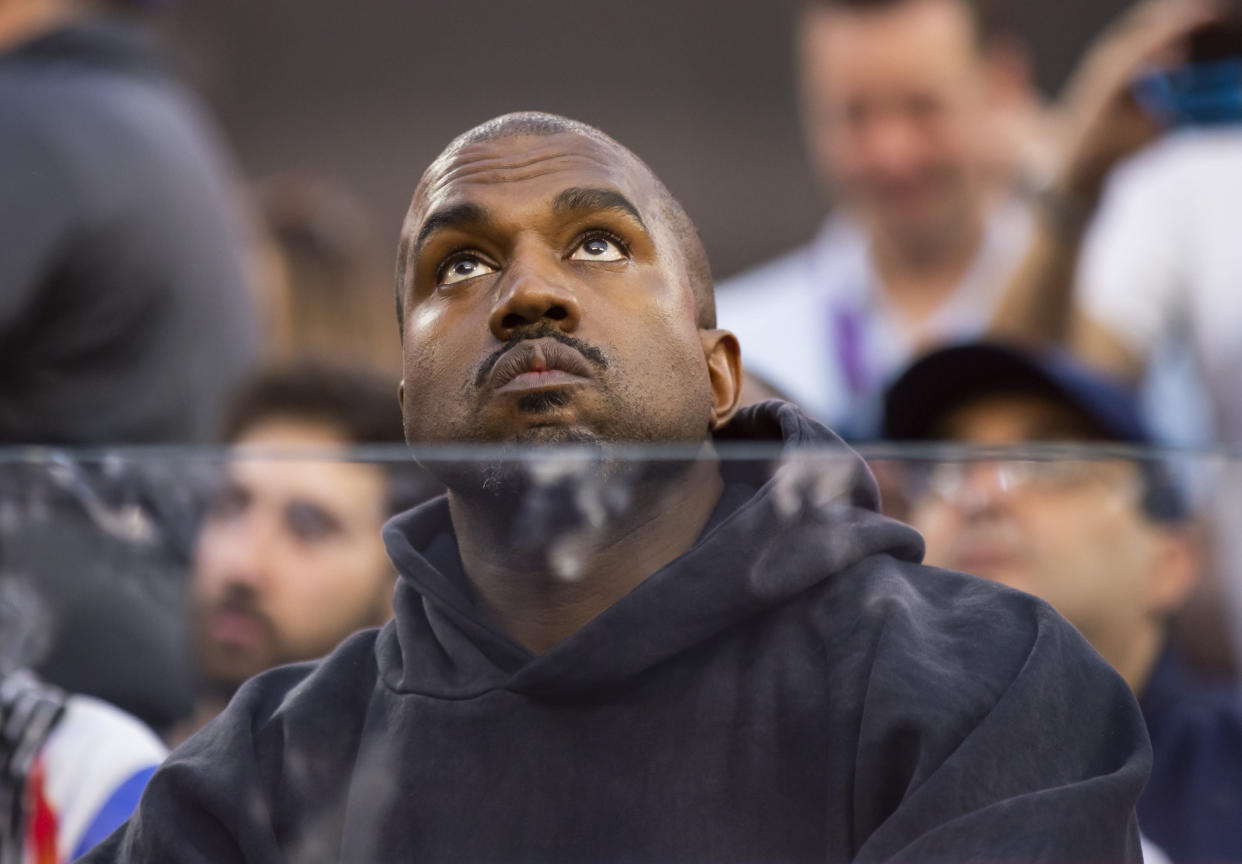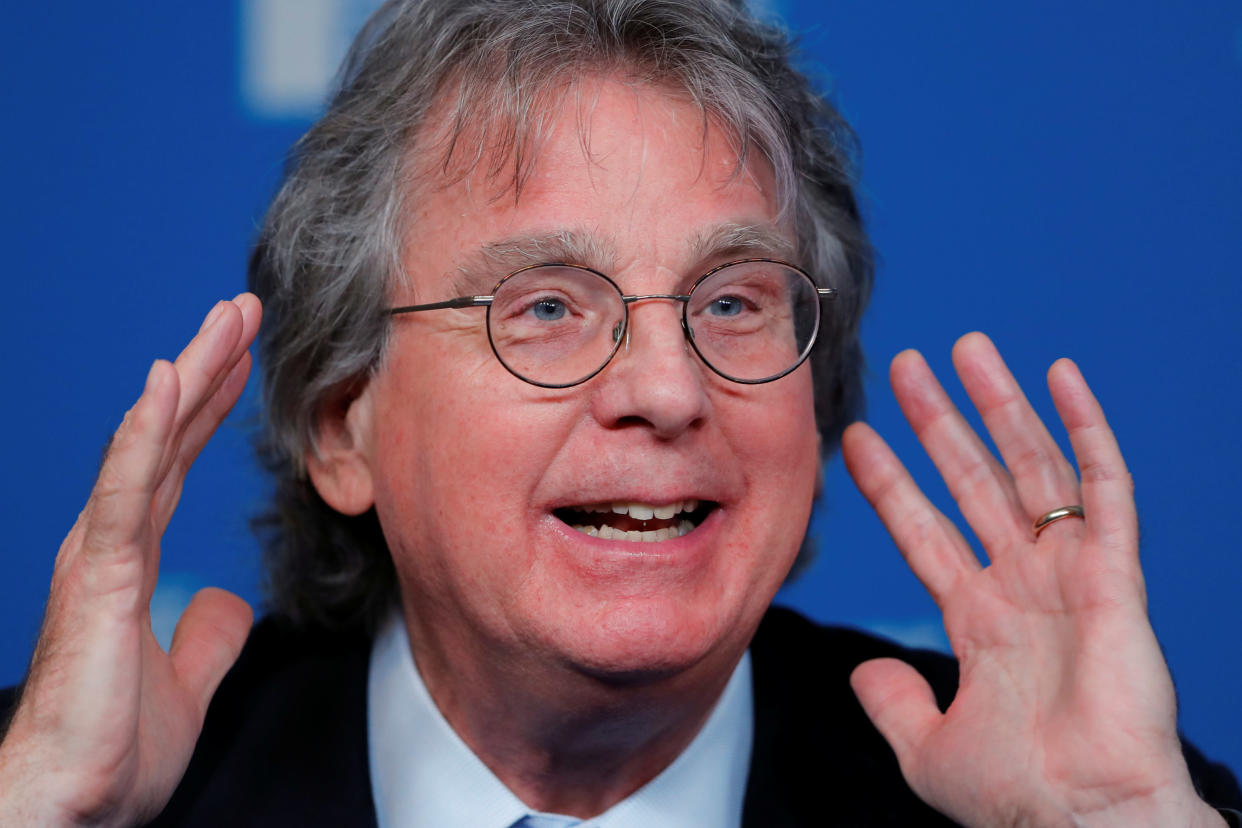Social media companies have increasingly played major roles in political discourse around the world and according to one expert, the fallout has been significant.
"We've had extraordinary damage done to democracy, public health, public safety, and people's ability to make their own choices," Roger McNamee, managing director at Elevation Partners and an early Facebook investor, told Yahoo Finance Live (video above). "Yet policymakers have done nothing, absolutely nothing."
Companies like Facebook-parent Meta (META) and Twitter (TWTR) have garnered criticism over the past decade, largely due to their dissemination of misinformation/disinformation as it relates to elections.
In recent years, Twitter in particular has been lambasted for elevating the platforms of former President Donald Trump, Congresswoman Marjorie Taylor Greene (R-GA), and, most recently, rapper Kanye West.
Earlier this week, West utilized Twitter and Instagram to share anti-Semitic comments before his accounts were eventually locked due to hate speech.
"I think that the whole situation with Kanye West, with Elon Musk attempting to buy Twitter, really highlights the extraordinary inaction and, frankly, in my mind, really unpardonable inaction by Congress, by the president, to do something about what is clearly a threat … especially to national security," McNamee said. "Twitter has a whistleblower who showed that there are people inside Twitter who're working for foreign governments. For a platform that has as much influence on politics and democracy as Twitter has, that's extraordinarily dangerous."
'Not at all confident we can fix this problem'
McNamee — who authored "Zucked: Waking Up to the Facebook Catastrophe" — laid out three key factors to the ongoing problems with social media: the scale of the platforms, the latency, and the incentives.
"Facebook, for example, where the worst offenses have taken place, has literally billions of posts every day," he said. "So the notion that you're going to somehow effectively monitor that number of posts is a big stretch."
And even if there were enough moderators and the platform's artificial intelligence (AI) platforms worked, he said, there will still be a lag in response – these platforms are just set up to move too quickly.
"The problem is the harm gets done in the first seconds after these harmful posts are put out," McNamee said.
The most deep-rooted issue, however, is that of incentives.
"This is the one that's killing us because there's no reason from an economic perspective why these companies should look out for the safety of their users, much less protecting the country's national interest," McNamee said. "Right now, the incentives are for them to make as much money as they can as quickly as they can and not worry about the consequences. And until that changes, I don't think there's a chance we're going to do anything good about this"
The Kanye West controversy illustrated the exception to this in that it became politically impossible for Twitter not to take action. Most of the time, though, "they're going do nothing," McNamee said.
Ultimately, McNamee is pessimistic about the ability to right social media's deepest wrongs, including the proliferation of hate speech on the platforms.
"I'm not at all confident that we can fix this problem," he said.
What's standing in the way
Although McNamee is a renowned tech investor, he's also become one of Big Tech's fiercest critics in recent years, urging the government to get actively involved in better regulation, particularly when it comes to social media.
"When I first started talking about this publicly in 2017, it was really obvious to me that the issue was the culture, the business model, and algorithms of platforms could undermine democracy and civil rights," he said. "I went to Congress… then continued to push them to try to do something about it, and [now] more than five years have gone by. Several elections have gone by, an insurrection has gone by, a pandemic has been amplified, and yet nothing has been done."
One key obstacle is Section 230 — which usually provides immunity for online platforms hosting content from third-party users.
While McNamee acknowledged the law as "incredibly important," he also highlighted where it falls short.
"Where I think things went off the rails is that the platforms chose, because the economics were better, to favor harmful content over good content," he said, "Basically hate speech, disinformation, and conspiracy theories are extraordinarily profitable because they trigger flight or fight. So people have to pay attention. And in a business where attention is everything, that kind of content is going to rise to the surface repeatedly."
Many advocates have been pushing for the repeal of Section 230 for years, arguing that it's shielded companies from any legal responsibility when users take advantage of their platforms to spread dis/misinformation.
McNamee argued for not only changing the current business model, which he described as "surveillance capitalism" — using data to manipulate people's choices and behaviors — but also ensuring there are laws to require safety.
"The same way we require safety for transportation or health care or other things, we need to require safety around these platforms because the companies have to have an incentive to protect the people who use their systems," he said.
Allie Garfinkle is a Senior Tech Reporter at Yahoo Finance. Follow her on Twitter at @agarfinks.
Click here for the latest technology business news, reviews, and useful articles on tech and gadgets
Read the latest financial and business news from Yahoo Finance
Download the Yahoo Finance app for Apple or Android
Follow Yahoo Finance on Twitter, Facebook, Instagram, Flipboard, LinkedIn, and YouTube
Source: Read Full Article


